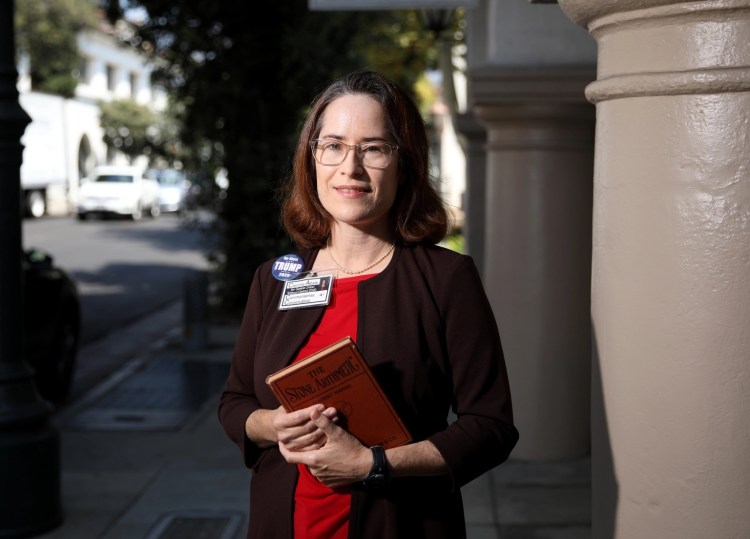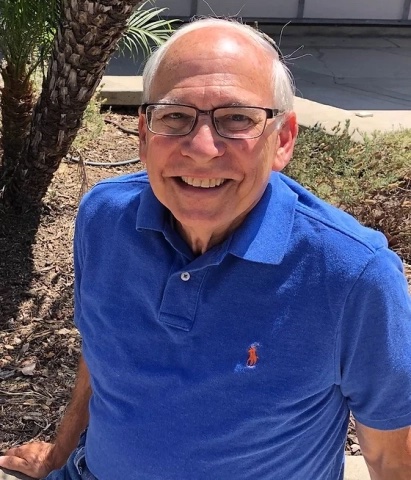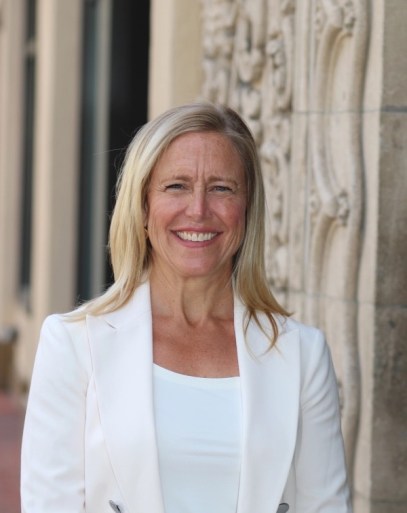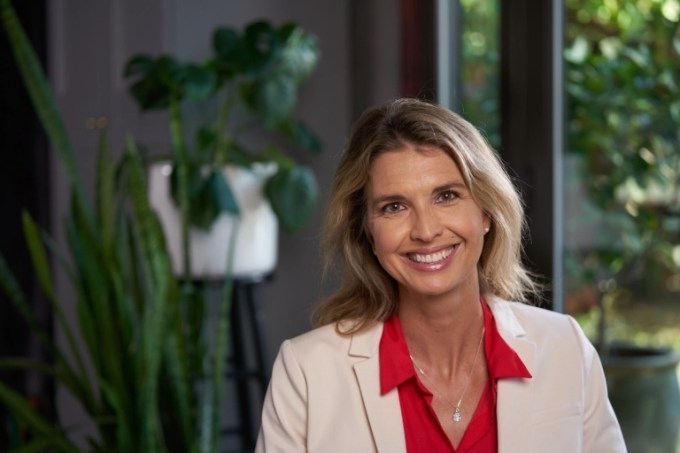Culture Wars Invade Goleta School Board Race
Five Candidates Represent a Wide Spectrum of Political and Educational Thought

In retrospect, few complaints reached our ears regarding the Goleta schools during the pandemic, and even now, Goleta parents are upbeat about their schools. It’s a stark contrast to the Santa Barbara schools, which seemed to have villagers armed with metaphoric torches and pitchforks at every school board meeting.
According to Richard Mayer, who is running for his 11th stint as a Goleta school board member, the district hired extra teachers to reduce the class sizes and also added permanent substitutes to forestall any gaps in teaching from the inevitable times when teachers would fall sick to COVID-19. Before- and after-school classes were held at each school, and summer school ran all day, all of which he believes decreased the anticipated learning loss among students.
Currently, two seats on the school board are in a competitive race: Trustee Area 1, which extends north of Highway 101 and up to Los Padres National Forest from El Capitan to a jagged line bordered by North Fairview, Cathedral Oaks, and North Patterson; and Trustee Area 3, which is south of that area and is shaped like a puzzle piece that includes the airport, university, Old Town, and More Mesa.
The trustee seat for Area 5 is also vacant but is being filled by Ethan Bertrand, running unopposed and not on the ballot for that reason. Bertrand, who will leave his position as a director of the Isla Vista Community Services District to join the school board, will represent Isla Vista in a district that runs along the beachfront area, including Santa Barbara Shores, to El Capitan.
The Independent asked questions of the two candidates running for Area 1 and the three vying for Area 3 to help Goletans make their most well-informed choice for the November 8 election.
AREA 1
Caroline Abate

Two candidates are competing to represent the children and families of Area 1, but one of them, Caroline Abate, said the campaign was getting very busy and that she could not commit to answering questions from the Independent. This was shortly before she took part in a school board candidates’ forum presented by Coalition for Neighborhood Schools — during which she wore a “Pray to End Abortion” button — from which some information about her candidacy could be gleaned.
Not long ago, Abate spent many of her Tuesdays offering public comment at the Board of Supervisors against COVID vaccines and at the Santa Barbara and Goleta city councils to speak in favor of President Trump’s policies. For the school district, Abate advocates a return to an academic education for all students and that the low proficiency scores need to improve in math and English language arts and literacy. In answering a question about the district’s resolution for the safe storage of guns at home, Abate mentioned the right to bear arms and privacy in a home and that there were both constitutional and enforcement issues. But she came down on the side of respecting human life as one of the most important things one could do.
Regarding expanding summer programs, she thought it sounded good but at the same time could end up costing more taxpayer dollars. Abate also thought the necessity of summer school might reflect discipline or work-ethic issues during the regular school year. She was not afraid to acknowledge she needed to know more about the root causes for the expanded need before she might be in favor. In a question about a high school sex ed curriculum — Goleta schools do not include grades above 6th — Abate wanted to know more about what was taught, stated it was unfortunate that parents had to worry about what was being taught, and concluded that focusing on academics, not inappropriate content, and getting test scores back up was her goal. (A recording of the forum is available here.)
Richard Mayer

By day, Richard Mayer is a psychology professor at UC Santa Barbara and the proud graduate of public schools in Cincinnati, Ohio, and Ann Arbor. By night, since 1981, he’s been on the Goleta school board and wrote How Not to Be a Terrible School Board Member, which he says is used for professional development in the field.
In addition to the changes the schools made for the pandemic, Mayer recognized the stresses and contentions of the times. He believed working together in the interests of all the district children requires a respectful and responsive school board, and he was committed to answering all the questions he was asked and visiting the schools in order to make informed decisions. “I am keenly aware that 3,500 wonderful children and 700 amazing employees depend on the Goleta Union School District, so I see my role as ensuring that we stay on a strong and steady course,” he said.
About 88 percent of the district budget went to salaries and benefits, he said, “so it is clear that the strength of our district depends on the people who work every day for every child.” He hopes to see the Dual Language Immersion Program expand by one grade level until they reached a complete K-6 program, and he also intends to see that the recommendations from an equity audit are implemented.
“I want to be part of a school district that is welcoming, inclusive, responsive, and effective in helping every child learn so they can achieve their dreams. Our community has come to value and respect our district, and I will do all I can to continue to earn that trust.”
Sign up for Indy Today to receive fresh news from Independent.com, in your inbox, every morning.
AREA 3
Bert Haley

Bert Haley is an effervescent guy who runs his own printing and embroidery business, with the Goleta schools as one of his clients, but it’s a business he says he’s willing to drop in order to add “a unique, local’s perspective to the GUSD school board.”
He’s aware of school issues from his 50 collective years as a student, employee, volunteer, parent, and spouse of the principal at La Patera, one of the district’s nine elementary schools. Foremost in his mind is the state of the facilities: “Our Goleta schools and playgrounds are literally falling apart. Many of the buildings are exactly the same as they were when I was attending them as a child, and improvements should have been made long ago with the conservative 15 percent to 19 percent reserve the district has always kept on hand.” Plumbing, heating, and air are at the top of his list for classrooms that he observes are now used until 6 p.m. through the after-school programs. The district’s financial stability is also its greatest strength, he said.
Haley is proud of the fact that Goleta “outperformed some of our neighboring districts and strives to bridge the achievement gap with our students of color and students from various backgrounds.” Haley hopes to give back to his community and to the district that provided his family with so much: “My children received a solid education and foundation in Goleta, and I want that for every student who attends a Goleta school, in this generation and future generations. I will listen to my community and their suggestions and try to represent them well on this board.”
Christy Lozano

Perhaps the best-known among the three candidates running for Area 3, Christy Lozano rose to prominence locally after appearing on a Fox News program to talk about a video she’d made arguing that the Santa Barbara school district’s anti-racism materials for teachers were toxic. She taught at six schools in that district at all grade levels and said she was in her 19th year of teaching. Lozano ran in June for superintendent of the County Education Office, losing to incumbent Susan Salcido.
Lozano is well-acquainted with the Goleta schools, as her daughter attended La Patera Elementary for seven years. There, Lozano was a volunteer in the classroom, chaperoned field trips, and served as vice president on the Parent Teacher Association. She’s also followed the district’s board for several years and has attended several meetings. Lozano was a physical education teacher, with a bachelor’s in kinesiology from Cal Poly, and she earned a master’s in education and an administrative credential from Cal Lutheran.
From her vantage point, Lozano said, “The GUSD has done a relatively good job educating some students.” She went on to add that “Hispanic students and families and students with special needs often do not have their specific educational needs met.” She wanted to build a “truly exceptional education system for all” and would work to listen to parent and community concerns in making that part of the district’s decision-making process.
“As a board member, I intend to listen to and work with teachers, administrators, parents, and the broader community to ensure that the Goodland has the great schools Goleta deserves.”
Emily Zacarias

“Public school is not just about Reading, Writing, and ’Rithmatic anymore,” said Emily Zacarias. “It’s about the whole child, and providing a learning experience that allows for the intellectual, social, and emotional growth of the child — to prepare them for life in a global society.” Zacarias grew up in what she called the “melting pot of culture” in the San Fernando Valley. She studied psychology at UCSB, including with Richard Mayer, graduating with a master’s in 2007. One of her children attends Kellogg School.
She described herself “an itinerant special education teacher” who worked for the Goleta district at all nine schools last year and is working through the County Education Office this year at Hollister School with severely disabled students. She hadn’t attended district meetings, she said, but kept up by “always making a point to read the minutes and reports, to keep abreast of any issues.”
She sees stable leadership at the district, as well as a focus on students that is reflected in the schools. During the pandemic, the response was swift and based on state public health directives, but Zacarias thought it was time to acknowledge the learning losses that occurred: “not only academic, but social and emotional. There was so much trauma that occurred during the pandemic…. We really need a path to healing, and that comes from outreach to families, validating the pain and suffering that occurred…. This is a topic that parents are talking about, but not as much within the district — possibly because grief usually occurs behind closed doors.”
Zacarias advocated re-teaching some basic skills students in the lower grades might have missed, such as “raising hands, sitting in chairs, interacting with peers in person.” She also said, “Moving away from a total reliance on devices/screens (due to a year of remote learning) would also go a long way in the path to healing. Parent education on ways to reduce screen time would be something I’d like to explore.”
Support the Santa Barbara Independent through a long-term or a single contribution.




You must be logged in to post a comment.